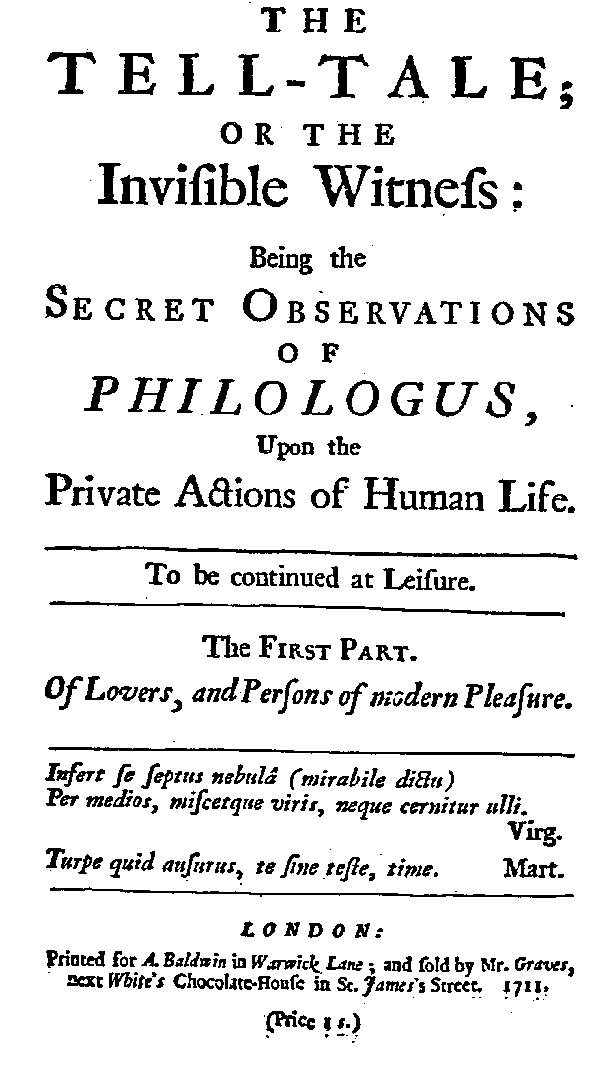![]() Library
Library

THE| TELL-TALE;| OR THE| Invisible Witness:| Being the| SECRET OBSERVATIONS| OF| PHILOLOGUS,| Upon the| Private Actions of Human Life.| [rule]| To be continued at Leisure.| [rule]| The FIRST PART.| Of Lovers, and Persons of modern Pleasure.| [rule]| Infert se septus nebulâ (mirabile dictu)| Per medios, miscetque viris, neque cernitur ulli.| Virg.| Turpe quid ausurus, te sine teste, time. Mart.| [rule]| LONDON:| Printed for A. Baldwin in Warwick Lane; and sold by Mr. Graves,| next White's Chocolate-House in St. James's Street. 1711.| (Price 1 s.)
titlepage/ 67 pp./ 8°.
{NA:CtY: College Pamphlets 1848}.
ESTC: n013408.
Philologus, The Tell Tale (London: A. Baldwin/ Mr. Graves, 1711). [Reprint ed. M. F. Shugrue (New York/ London, 1973).]
Brilliant stormy narration with sudden changes of the locations, sentences with superb inclusions, brackets and paranthesis. The language at times rhythimcal as if stolen from Shakespeare's Tempest. Scenes with gestures and movements as if observed on a stage. Dialogues with readers.
Philologus writes a letter hoping it will move Coquet Millamant to quit with him, unvoluntarily he sets a spirit free who enables him to visit the beloved as an invisible witness. His "secret observations" should make him unhappy yet they amuse him: Millamant marries a man, who plans to turn make her suffer, yet she responds - she will not be less cruel to her husband. Conclusion: The author asks his readers to inform him of cases in which they could need an invisible wittness, letters can be left at the bookseller.
o.s.